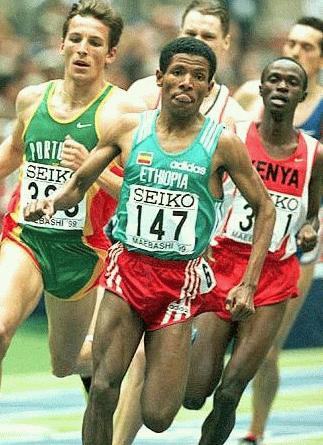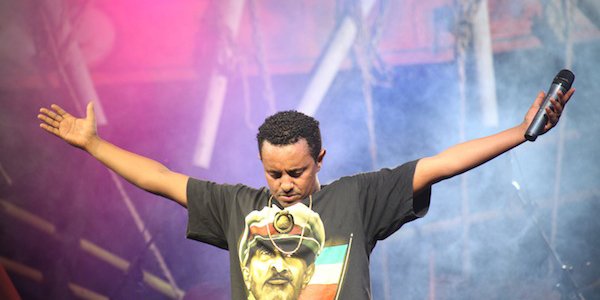Remembering Haddis Alemayehu
One of the great Ethiopian authors and statesman of this century, Haddis Alemayehu was born on his day, October 17. If he had been alive, he would have turned 99 today. 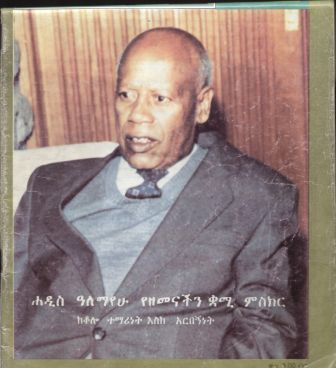
Born in the Debre Markos district of Gojam province on October 17 1010, Haddis grew up with his mother,Desta Alemu, as his father, Alemayehu Solomon, worked away from home as priest and took another wife. He had begun school in traditional poetry which went up to the level of Zema-chants at home under his maternal grandfather. He then proceeded to Debre Gennet Elyas, thence to Debrework and finally to Dima Giorgis where he graduated in qene.Haddis then attended several schools in Addis Ababa, including the Swedish Mission School(1925-1927), Teferi Mekonen School, and Ecole Imperial Menelik II.
He wrote his first play during this period, “Ye Abesha en ye wedewhula gabcha” (The Marriage of Habesha and the Backward) which displayed remarakably mature style.It tells about the marriage of the woman Ethiopia(Habesha) and her children by her husband, the Backward One.Her children think only of thier own pleasure, not about Ethiopia’s well-being, and therefore the glory and greatness of Ethiopia suffer and decay; she becomes poor and ill, she gets an eye disease so that she canot see well, and she lives in misery.Ethiopia tells her son and dughters that it is thier attitude that has led her tp present misfortune.Then Haile Selassie, her latest son, is born, and he changes the state of affairs;he leads the famikly to prosperity and well being, and his mother Ethiopia gets proper treatment and gets well again, and her eyesight is restored.
The play was written for a school performance, but staged in the Majestic Hotel in Addis Ababa.He also composed the songs for the play.
Read more »
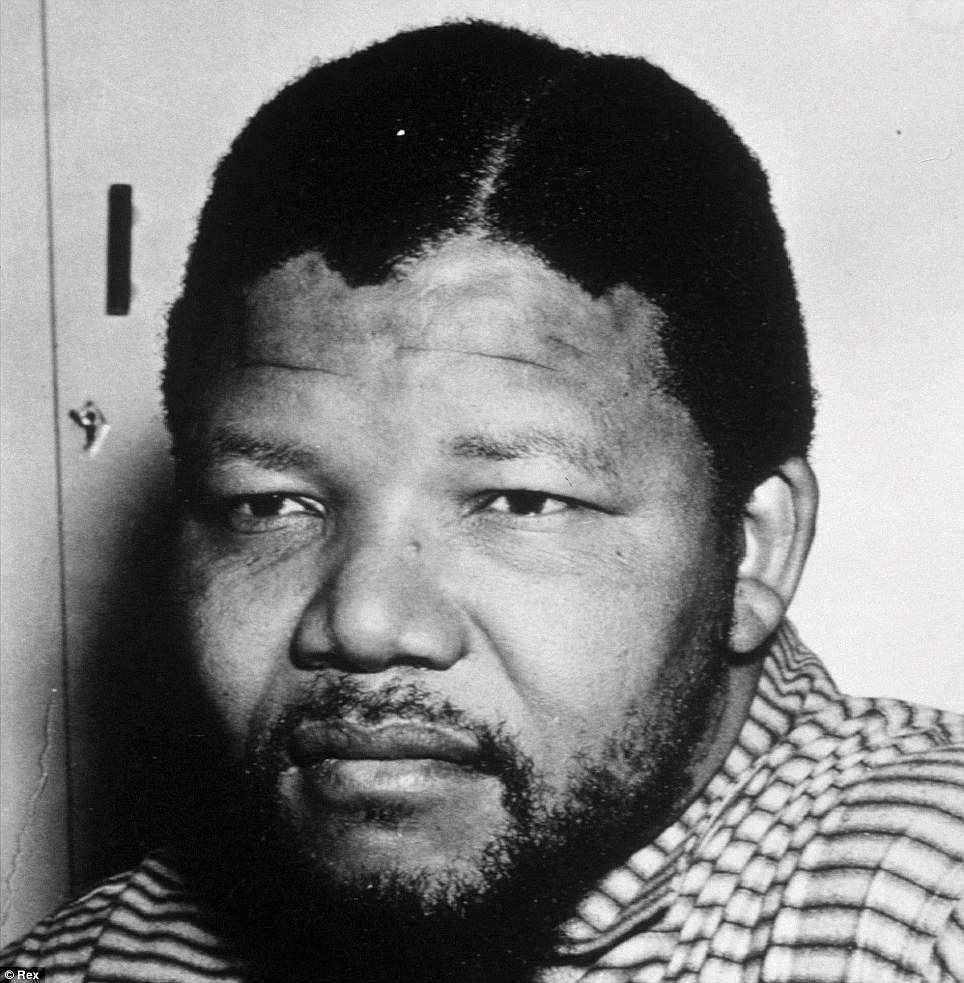
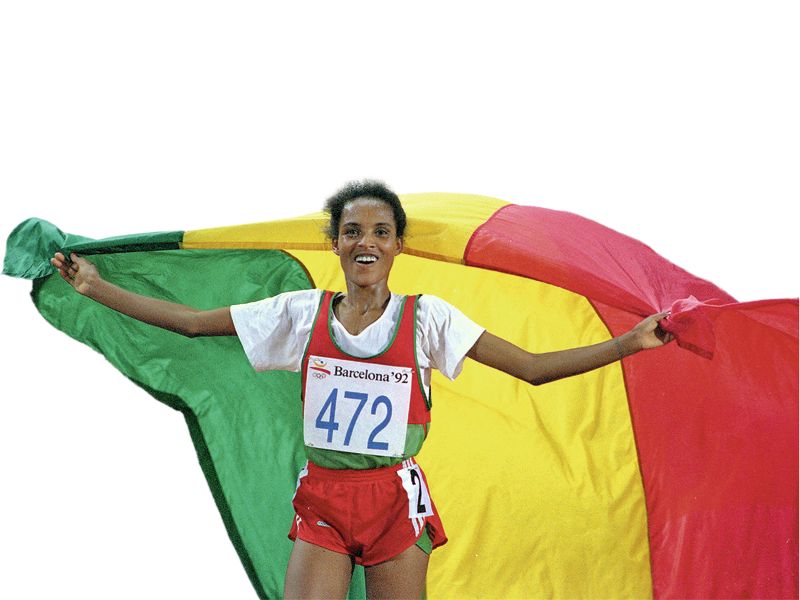 Derartu Tulu is
Derartu Tulu is